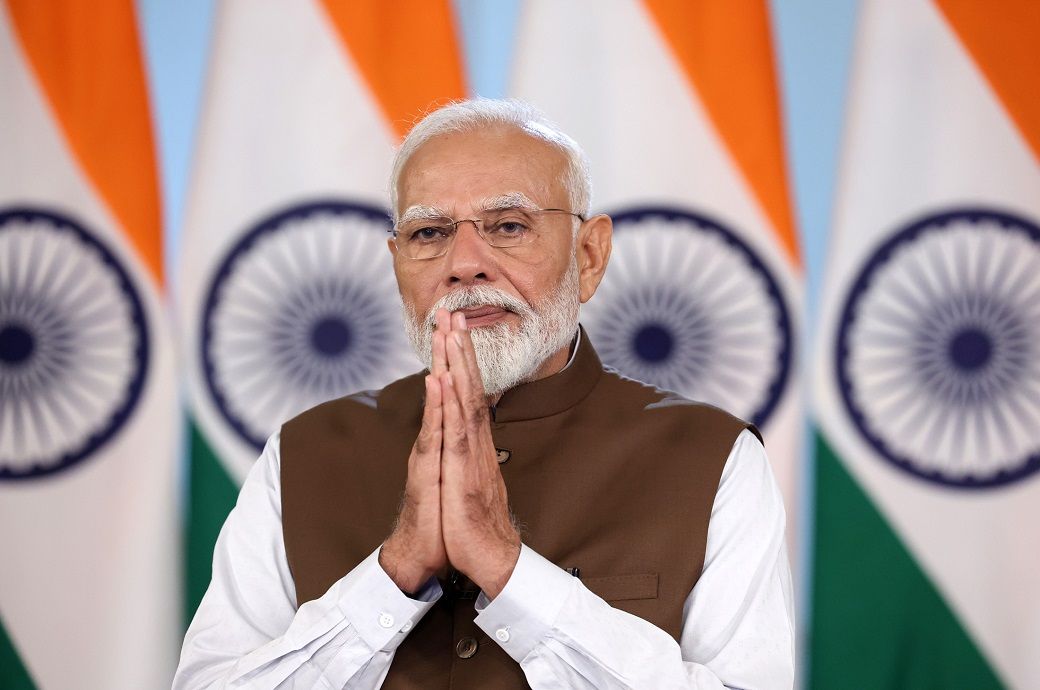
Rakesh Mehra, chairman of the Confederation of Indian Textile Industry (CITI), told Fibre2Fashion, “The new government will have to take steps to support growth in the downstream industries of the textile sector. The fabric and garment industry should grow for the overall development of the textile industry.” He suggested that the government should relook its policy of quality standardisation of fibre and yarn.
Quality control orders (QCOs) should be implemented on end-products like garments, home furnishings, and other textile products. Currently, India is losing the potential benefit of value addition in downstream industries as it has implemented quality standards on raw materials. Mehra stressed that downstream industries should have ensured availability of quality raw material at competitive prices so they can stay competitive in domestic and global markets.
Mithileshwar Thakur, secretary general of the Apparel Export Promotion Council (AEPC), said that the new government should consider a new version of the production-linked incentive (PLI) scheme for MMF fabrics, MMF garments and Trims and Embellishments with lower investment threshold to enable smaller units to participate. He suggested that e-commerce could be a new driver for Indian textile exports, but it needs policy tweaking to align with specific requirements in e-commerce trade. Customs duty should be removed on textile machinery imports to facilitate quicker and cost-effective modernisation of the industry. India also needs to ease and simplify processes and procedures for MMF fabrics imports to strengthen MMF apparel exports ecosystem in the country. The industry also needs support for skill development for workers in the industry.
Ashish Gujarati, former president of the Southern Gujarat Chamber of Commerce and Industry (SGCCI), told F2F, "The new government should relook at its policy of quality control orders (QCO) on fibre and yarn. The Indian industry is losing value addition as they are not competitive against cheaper fabric and garments. The domestic industry immediately needs to focus on raw material of global standard at competitive prices." He said that the government should implement quality control orders on garments and other textile products.
Gujarati also mentioned that micro and small industries need a Technology Upgradation Fund (TUF) scheme for the modernisation of the production process. The scheme was discontinued two years ago as the government was not in favour of providing capital subsidy for fixed investment. It floated the PLI scheme which is linked with production in the following years. Gujarati argued that at least ₹100 crore (~$11.99 million) investment is required in specific products of the MMF segment. Micro and small industries cannot invest such huge capital. The purpose of PLI is also different from TUF. The new government should come up with a new TUF scheme at least for micro and small industries as they are bigger job creators in the country.
The Indian textile industry also expects an immediate extension of the interest equalisation scheme as it is going to end on June 30, 2024. The scheme was initially launched in 2015 and was extended from time to time. The government provides 3 per cent subvention to MSME exporters and 2 per cent for exporters in other eligible sectors. The industry also expects to raise the rate of subvention as the repo rate increased from 4.4 per cent to 6.5 per cent in the last few years. The Director General of Foreign Trade (DGFT) is also consulting industry bodies to improve the scheme as the Ministry of Finance is looking to improve the financial system for foreign trade so it can yield expected results in terms of higher exports of various products from India.
A prominent Delhi-based yarn trader said that India could not improve its exports of textile products due to various reasons. The new government will have to move fast by policy intervention to drive Indian textile exports. Indian exporters are unable to export high-end textile products as they do not have enough infrastructure to tap potential markets. For example, India could not tap the Japanese market as Indian exporters are unable to meet the quality standards of Japanese importers. Indian products have to face competition from cheaper textile products of average quality exported from third-world countries. These nations are benefitting from cheaper labour and import-free market access in developed countries.
A Ludhiana-based businessman said that the new government should finalise free trade agreements with the UK and the European Union as soon as possible. It will improve the competitiveness of Indian textile exports. The industry will have duty-free access to these promising markets.
Fibre2Fashion News Desk (KUL)